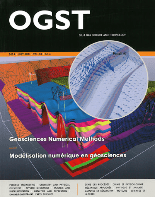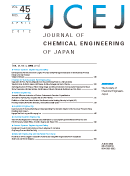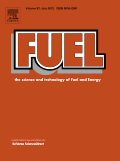
Oil & Gas Science and Technology-Revue d IFP Energies nouvelles
Scope & Guideline
Driving the Future of Energy Engineering
Introduction
Aims and Scopes
- Enhanced Oil Recovery (EOR) Techniques:
Research aimed at improving the efficiency of oil extraction processes, including innovative methods such as chemical flooding, thermal recovery, and gas injection. - Reservoir Characterization and Modeling:
Studies focusing on the physical and chemical properties of reservoirs, employing advanced modeling techniques to predict fluid behavior and optimize extraction strategies. - Fluid Dynamics and Transport Processes:
Investigations into the movement of fluids within porous media, including numerical simulations and experimental studies related to diffusion, flow dynamics, and capillarity. - Sustainable Energy Solutions:
Exploration of alternative energy sources, carbon capture technologies, and environmental impact assessments to promote sustainable practices in the oil and gas industry. - Materials and Chemical Engineering:
Research into developing new materials and chemical processes for improved efficiency in energy production, including catalysts and additives for refining and processing. - Data Science and Machine Learning Applications:
Utilization of advanced algorithms and data analytics to enhance decision-making processes, predictive modeling, and operational efficiencies in exploration and production.
Trending and Emerging
- Machine Learning and Artificial Intelligence Applications:
The integration of machine learning techniques for predictive analytics and operational optimization is rapidly growing, showcasing the industry's shift towards data-driven decision-making. - Carbon Capture and Storage Technologies:
Research is increasingly focusing on methods to capture and utilize carbon emissions, reflecting a commitment to reducing the environmental impact of fossil fuel production. - Advanced Materials for Energy Applications:
Emerging studies on novel materials, particularly in catalysts and polymers, are gaining traction as the industry seeks to enhance efficiency and reduce costs. - Hydraulic Fracturing and Enhanced Recovery Techniques:
Innovations in hydraulic fracturing methods and other EOR techniques are being explored to maximize resource recovery from complex reservoirs. - Environmental Impact Mitigation Strategies:
There is a notable increase in research aimed at understanding and mitigating the environmental effects of oil and gas extraction, aligning with global sustainability goals.
Declining or Waning
- Traditional Reservoir Engineering Practices:
Research areas focused on conventional methods of reservoir management and production optimization that may be overshadowed by more advanced technologies and methodologies. - Basic Geophysical Exploration Techniques:
Studies that primarily utilize standard geophysical methods for subsurface exploration are becoming less prominent as more sophisticated and integrated approaches gain traction. - Single-Factor Experimental Studies:
Research emphasizing isolated experimental setups is declining in favor of more comprehensive studies that consider multiple interacting variables, particularly in complex systems. - Static Modeling Approaches:
The shift towards dynamic and real-time modeling techniques is leading to a decrease in the focus on static models that do not account for temporal changes in reservoir conditions. - Conventional Fuel Production Techniques:
As the industry moves towards greener alternatives and sustainability, traditional methods focused solely on fossil fuel extraction are seeing reduced emphasis.
Similar Journals

SPE Production & Operations
Unlocking Insights in Energy EngineeringSPE Production & Operations is a prestigious journal published by the Society of Petroleum Engineers (SPE), focusing on the critical domains of energy engineering and fuel technology. With an ISSN of 1930-1855 and an E-ISSN of 1930-1863, this journal has established itself as a vital resource in understanding the intricacies of production and operational practices within the petroleum sector. Its impressive Q2 ranking in both Energy Engineering and Power Technology, and Fuel Technology reflects its commitment to providing high-quality, impactful research. Spanning years from 2006 to 2023, SPE Production & Operations maintains an open access policy that ensures widespread dissemination of research findings, promoting knowledge sharing among industry professionals, researchers, and students alike. As the energy landscape continues to evolve, this journal serves as an essential platform for innovative research and discussion that addresses contemporary challenges and advancements in the field.

JOURNAL OF CHEMICAL ENGINEERING OF JAPAN
Fostering Collaboration for Global Scientific ProgressJOURNAL OF CHEMICAL ENGINEERING OF JAPAN is a distinguished academic publication in the field of chemical engineering and chemistry, published by Taylor & Francis Ltd. With its ISSN 0021-9592 and E-ISSN 1881-1299, this journal has been a vital resource for researchers and practitioners since its inception in 1968 and continues to provide essential insights and advancements through 2024. The journal operates under an Open Access model as of 2023, promoting wider dissemination of research findings and encouraging collaboration within the global scientific community. Currently categorized in the Q4 quartile for both Chemical Engineering and Chemistry (miscellaneous) in 2023, it ranks within the lower percentiles of its respective fields, offering a platform for emerging scholars to publish their work and gain visibility. As part of Japan's academic landscape, it addresses numerous aspects of chemical engineering, fostering innovation and technical development that contribute to the industry's growth. Engaging with this journal is paramount for those looking to stay informed on the latest research trends and applications in chemical processes.

Gas Science and Engineering
Advancing the Frontiers of Energy and Fuel TechnologyGas Science and Engineering is a premier academic journal published by Elsevier, dedicated to advancing knowledge in the critical domains of energy engineering, fuel technology, and geotechnical engineering. With a notable impact factor that underscores its significance in the field, this journal provides a platform for researchers, professionals, and students to explore cutting-edge research and innovative methodologies. As evidenced by its strong performance in Scopus rankings—placing within the top quartiles for various categories—the journal is recognized for its rigorous peer-review process and commitment to open access, allowing for wider dissemination of knowledge. Based in the Netherlands, Gas Science and Engineering aims to foster collaboration and discussion among scholars and industry experts, making it an essential resource for anyone engaged in the study of gas sciences and related fields.

Petrophysics
Driving Progress in Energy Challenges through Collaborative ResearchPetrophysics, an esteemed journal published by the Société des Pétrophysiciens et des Analysts de Forage (SPWLA), serves as a vital platform for sharing groundbreaking research in the interconnected fields of energy, geotechnical engineering, and engineering geology. With its ISSN 1529-9074, this journal has progressively established itself within the academic community, evidenced by its ranking in the Q3 category for both Energy (miscellaneous) and Geotechnical Engineering and Engineering Geology as of 2023. Researchers and professionals can contribute to and benefit from the collective insights shared within its pages, fostering advancements in petrophysics that are crucial for addressing contemporary energy challenges. While it does not currently offer open access, the journal remains pivotal in disseminating valuable findings from 2000 to 2012 and more recently from 2017 to 2023, driving innovation within a global context from its base in Houston, Texas. Engage with Petrophysics to explore and contribute to the ever-evolving landscape of energy and geotechnical research.

Upstream Oil and Gas Technology
Pioneering Research for Sustainable Energy SolutionsUpstream Oil and Gas Technology, published by Elsevier, is a leading journal dedicated to advancing knowledge and innovation in the upstream oil and gas sector. With an ISSN of 2666-2604, this journal offers insightful research articles and critical reviews from 2019 to 2023, creating a valuable repository of knowledge for professionals and academics alike. Strategically positioned in the Q2 quartile of various related fields, including Chemical Engineering, Fuel Technology, and Geophysics, it holds impressive Scopus rankings, such as Rank #30 in Geophysics, demonstrating its significant impact within the scientific community. Although currently not operating under an open access model, the journal remains accessible through institutional subscriptions, ensuring that essential research is readily available to those in the industry. The editorial objectives focus on promoting high-quality research that addresses contemporary challenges in exploration, production, and sustainable practices within the upstream oil and gas domain, making it an invaluable resource for researchers, students, and industry professionals.

Engineering Technology & Applied Science Research
Fostering Global Collaboration in Engineering ResearchEngineering Technology & Applied Science Research is a distinguished open-access journal published by EOS ASSOC based in Greece, focusing on the multifaceted realms of engineering, materials science, and signal processing. Established in 2011, this journal has rapidly gained recognition, achieving a Q2 ranking in Engineering (miscellaneous) and a Q3 ranking in both Materials Science and Signal Processing for 2023, showcasing its growing impact in these critical fields. With an emphasis on disseminating high-quality research and fostering innovation, ETASR provides a platform for researchers, professionals, and students to share their findings and explore emerging technologies. The journal's Scopus rankings further reinforce its significance, positioning it strongly within the top percentiles among its peers. With a commitment to open access, ETASR ensures that research is accessible to a global audience, promoting collaboration and knowledge sharing across disciplines. Whether you are a seasoned researcher or a budding student, ETASR is an invaluable resource for advancing your understanding and contributing to the cutting-edge developments in engineering and applied sciences.

SPE RESERVOIR EVALUATION & ENGINEERING
Exploring the Depths of Reservoir Engineering ExcellenceSPE RESERVOIR EVALUATION & ENGINEERING, published by the Society of Petroleum Engineers, is a leading academic journal that plays a pivotal role in the fields of energy engineering and geology. With a notable Q2 ranking in Energy Engineering, Fuel Technology, and Energy (Miscellaneous), as well as a Q1 ranking in Geology, this journal is recognized for its high-quality, peer-reviewed research contributions that enhance our understanding of reservoir evaluation and engineering practices. Since its inception in 1999, the journal has aimed to disseminate innovative techniques and methodologies applicable to both academia and industry. Available in both print (ISSN: 1094-6470) and online (E-ISSN: 1930-0212) formats, it ensures wide accessibility to its content even as it embraces Open Access options for select titles. Researchers, professionals, and students alike can benefit from the rich repository of technical papers, case studies, and reviews, all designed to advance knowledge and applications in the ever-evolving energy sector.

Journal of Petroleum Exploration and Production Technology
Innovating Petroleum Practices through Open ResearchThe Journal of Petroleum Exploration and Production Technology, published by SPRINGER HEIDELBERG, is a prominent Open Access journal dedicated to advancing knowledge in the fields of energy, geotechnical engineering, and engineering geology. Since its inception in 2011, the journal has established itself as a critical platform for researchers and professionals seeking to share innovative research, methodologies, and technology developments in petroleum exploration and production. With an impressive ranking of Q2 in both the Energy (miscellaneous) and Geotechnical Engineering and Engineering Geology categories as of 2023, it attracts contributions that push the boundaries of our understanding in these essential industries. The journal is indexed in major databases, ensuring wide visibility and accessibility for its published work. The dedication to Open Access allows for unrestricted dissemination of research, promoting collaboration and knowledge transfer within the global community.

Fuel
Unleashing Potential in Chemical Engineering and EnergyFuel is a premier international journal published by Elsevier Science Ltd, showcasing critical advancements and insights in the fields of chemical engineering, energy engineering, power technology, and organic chemistry. With a significant history dating back to 1922 and continuous publication from 1970 to 2025, Fuel holds an impressive position in the academic community, reflected in its top-tier rankings—Q1 in multiple categories including Fuel Technology and Chemical Engineering for the year 2023. This journal is dedicated to exploring innovative research and application of fuel technologies, driving forward the dialogue on sustainable energy solutions. Researchers and professionals alike will find Fuel to be an essential resource, providing access to high-impact articles that contribute to advancements in methodologies and applications, while navigating the complexities of global energy challenges.

CHEMISTRY AND TECHNOLOGY OF FUELS AND OILS
Bridging Chemistry and Engineering for Tomorrow's FuelsCHEMISTRY AND TECHNOLOGY OF FUELS AND OILS, published by SPRINGER, is a pivotal journal dedicated to advancing the understanding and technologies surrounding fuels and oils. With its ISSN 0009-3092 and E-ISSN 1573-8310, this journal has been a reliable resource in the field since its inception in 1965, providing insights into the latest research and developments up until 2024. While it currently holds a Q4 status across various quartiles, including Chemical Engineering and Fuel Technology as of 2023, the journal's commitment to disseminating valuable knowledge plays a crucial role in nurturing the academic discourse surrounding energy and chemical processes. Although it does not offer Open Access, the journal is critical for researchers, professionals, and students aiming to deepen their expertise in energy engineering, chemical engineering, and fuel technology. Its contributions underlie significant advancements in sustainable energy practices and fuel innovations, making it an essential read for those engaged in these crucial scientific domains.